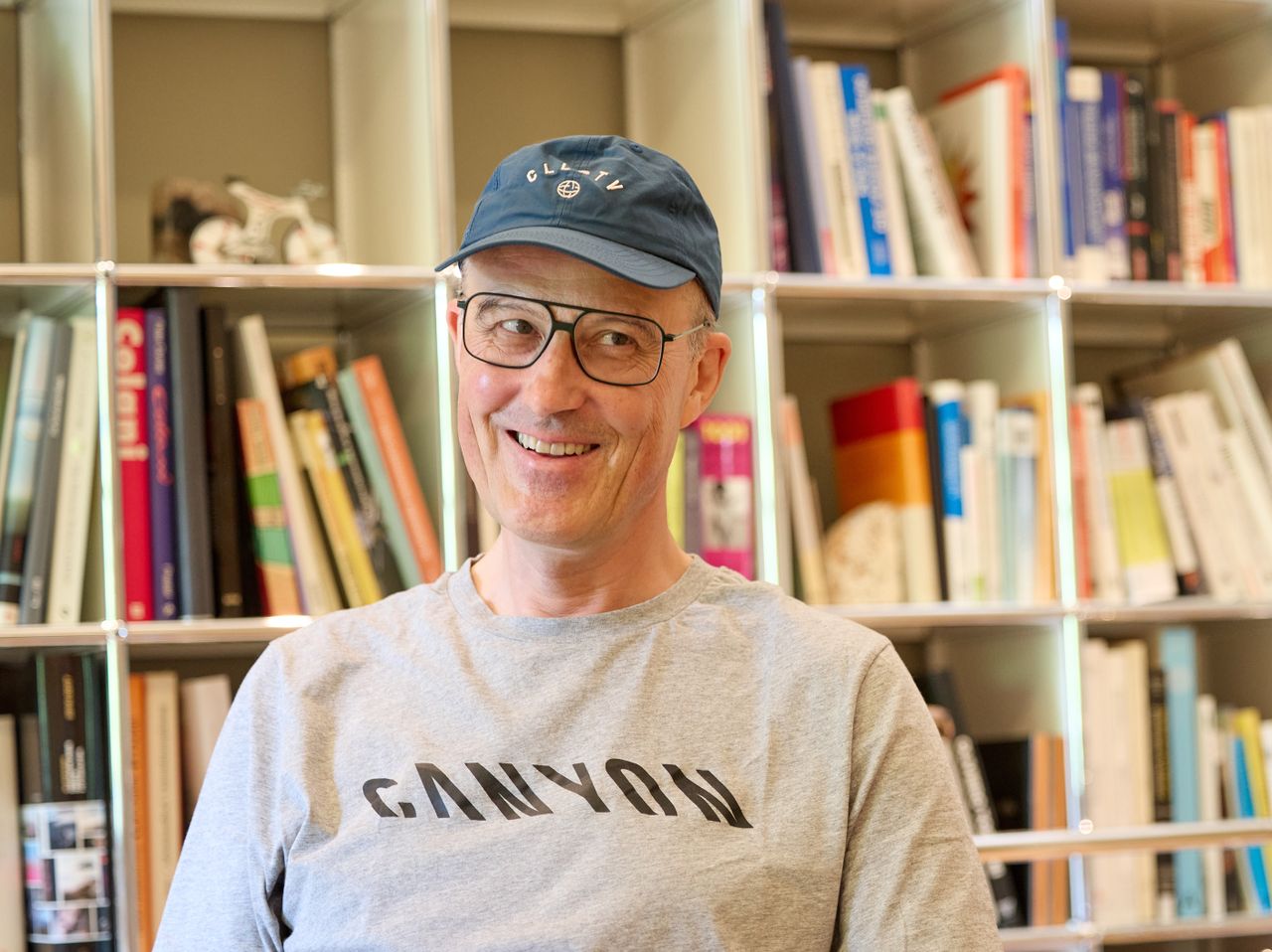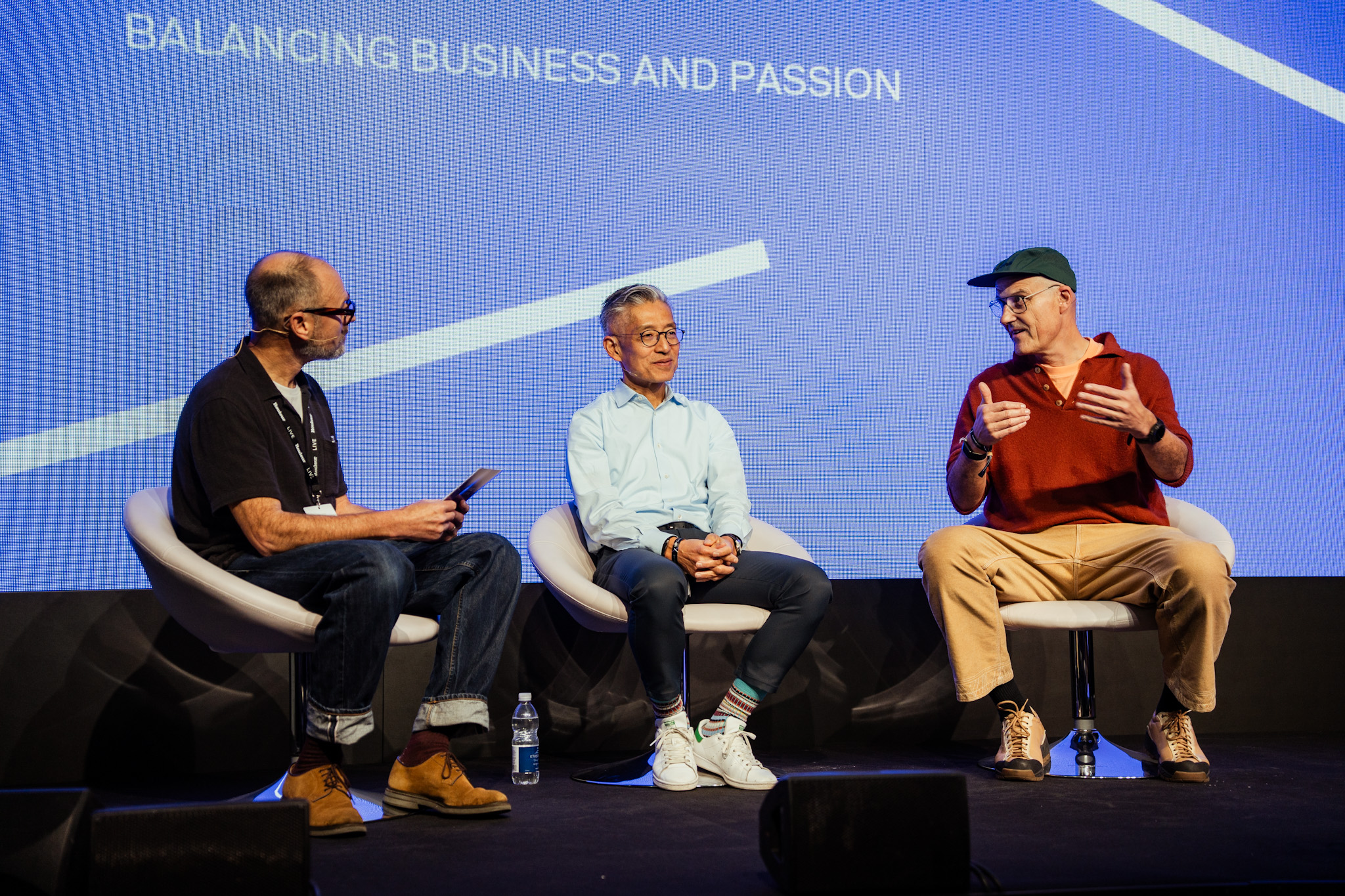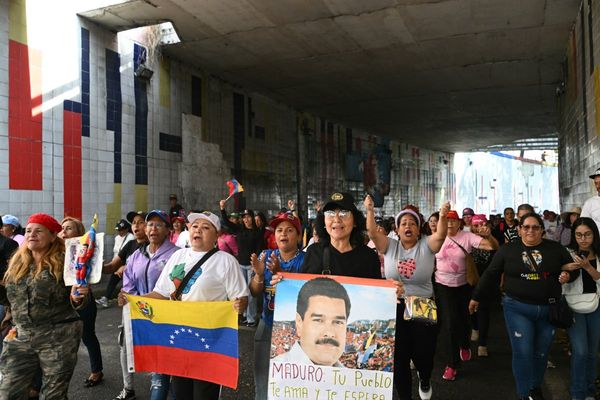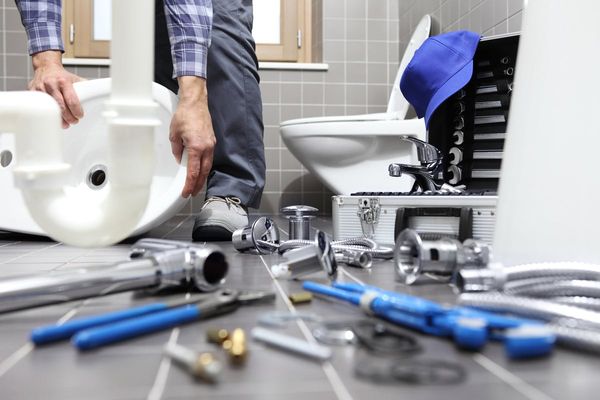
In 2020, the CEO of Canyon Bicycles, Roman Arnold, left the brand he and his brother built in their parents' garage as teenagers in the 1980s.
A diagnosis of prostate cancer forced his hand, but following a recovery and an 8,000-mile year on the bike, the German felt the time was right to return.
A lot has changed in that time. The brand's flagship race bike, the Aeroad, has seen two new iterations, with a third rumoured to be on the way; and their star man, Mathieu van der Poel, has won seven monuments and a World Championship title.
But the one thing – well, three – that hasn't changed is the brand's WorldTour representation. Alpecin-Deceuninck (now including the women's outfit, Fenix-Deceuninck), Canyon-SRAM zondacrypto and Movistar were then, and remain still, sponsored by the German direct-to-consumer brand.
By way of comparison, Scott Bikes has sponsored three teams in that same time, while Bianchi is strongly rumoured to be set to move to its fourth in the same timeframe: Jumbo-Visma, Team BikeExchange, Arkea-B&B Hotels, and soon-to-be Bahrain Victorious.
Every year, the off-season is a time for negotiation and often becomes a merry-go-round of sponsor swaps.
This year is a particularly busy one, with Lotto-Soudal and Intermarché-Wanty merging, forcing Cube out, which recently announced it is replacing Enve at TotalEnergies.
Meanwhile, Factor delivered Sylvan Adams’ Cycling Academy an ultimatum, while Premier Tech has pulled out of its agreement altogether; Deceuninck is reigning in its title-sponsorship agreement with the Roodhoofts' team; Rapha has ended its sponsorship with of EF Pro Cycling; Q36.5 has already announced a switch from Scott to Pinarello – the list goes on.
All the while, Canyon's sponsorships – which Arnold is quick to correct and call 'partnerships' – seem steadfast.
He confirms as much, too. "No change for 2026," was the simple confirmation he gave in an interview with Cyclingnews at Rouleur Live.
The only difference in Canyon's long list of commitments is the launch of yet another team, a 10-rider gravel team, adding to the five WorldTour outfits currently supported (and their U23 development squads), the Danish and USA track squads, various high-level triathletes, mountain bikers and many more.
When asked why so many, the answer was originally multifaceted, with different motivations for each.
He explained that Canyon-SRAM zondacrypto is "super, super important" to enable the brand to not only promote women's cycling, but make the best bikes for women too, something it prides itself on.
Alpecin-Deceuninck, he says, is "obvious, with one of the best riders in the world," in Mathieu van der Poel.
Movistar, however, is the interesting one. He explains it comes as a result of Canyon's and Arnold's commitment to sustainable relationships.
"For me, sustainability is to stay with the guys. If you think the team is right, the people are right, therefore we think to the future. They will play a major role again in the grand tours, how they change the team right now."

I say 'originally,' though, because when later asked about how sponsorship agreements come to be, he delved deeper into the motivations behind why he, and the brand he leads, partners with these teams.
"Like every relationship in life, it's 'do we care about the same values?' If we don't care about the same values, we don't want to be in a team. We've had requests from world-class teams in the past, but we are thinking, 'maybe we're not aligned on the same values.'"
These values, which he briefly suggests include a commitment to women’s cycling and the pursuit of race bike perfection, allow Canyon to make better products for "the most important person in the Canyon business," and after my initial puzzlement, he reassures me it is not Arnold himself, but the customer.
"It's not about money. Like everything in life, I think a good relationship works out if you are aligned in the values, what you want to achieve, and how you handle it. Part of the values for me, is if you work together… this is racing, sometimes it doesn't work out… so you have to go through bad times.
"You cannot do this forever, but everybody wants to be with you in the good times. Sometimes, the riders don't have a good ride, or they crash, and so on."
Arnold reiterates that he doesn’t see Canyon as a sponsor of any of its teams, but as he earlier corrected, a partner.
“We think [ourselves to be] an essential part of the success of the team.”
But to clarify, this isn't a novel approach nor one exclusive to Canyon, even if the German brand has a handful of strong examples of sustainable brand-team relationships.
Long-term relationships are the goal for all sponsors, be they bike brands, as in the case here, Trek’s relationship with (and part ownership of) Lidl-Trek, Specialized's connection to Soudal-QuickStep and Red Bull-Bora-Hansgrohe, or Pinarello's tie to Ineos, or even in the case of non-endemics, such as Movistar, Cofidis and QuickStep, who have their own respective long-term commitments to cycling teams.
With sticking-plaster solutions come anxiety and rash decisions, and with mergers and the folding of teams come job losses.
Long-term vision and commitment provide a strong foundation for any team, rather than a constant pursuit of immediate, quick-win successes. It allows long-term building, vision, and ultimately contributes to the success and security of our sport.







